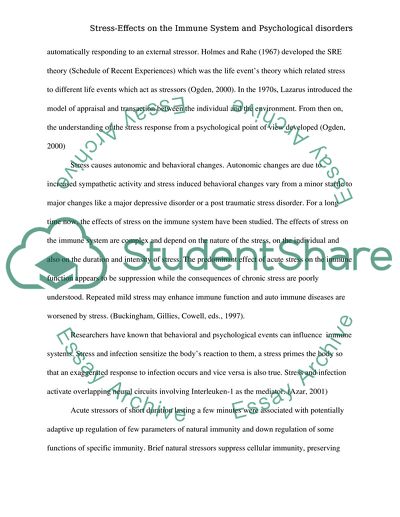Cite this document
(“Stress-Effects on the Immune System and Psychological Disorders Dissertation”, n.d.)
Retrieved from https://studentshare.org/nursing/1535487-what-are-the-effects-of-stress-on-the-immune-system-and-people-with-diagnosed-psychological-disorders
Retrieved from https://studentshare.org/nursing/1535487-what-are-the-effects-of-stress-on-the-immune-system-and-people-with-diagnosed-psychological-disorders
(Stress-Effects on the Immune System and Psychological Disorders Dissertation)
https://studentshare.org/nursing/1535487-what-are-the-effects-of-stress-on-the-immune-system-and-people-with-diagnosed-psychological-disorders.
https://studentshare.org/nursing/1535487-what-are-the-effects-of-stress-on-the-immune-system-and-people-with-diagnosed-psychological-disorders.
“Stress-Effects on the Immune System and Psychological Disorders Dissertation”, n.d. https://studentshare.org/nursing/1535487-what-are-the-effects-of-stress-on-the-immune-system-and-people-with-diagnosed-psychological-disorders.


